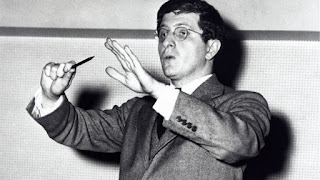Yesterday was the external solemnity of the feast of Corpus Christi (the actual feast was Thursday, June 3, but it was celebrated on Sunday.) Corpus Christi is the Body of Christ. For Catholics this is the celebration of the True Presence of the body, blood, soul, and divinity of Christ present in the Eucharist.
Sadly, only about 30% of Catholics believe in the True Presence, according to a 2019 poll. Only a third believe what the Church teaches. Why go to Mass, then? Why receive Holy Communion if it’s only bread and wine? I can’t answer those questions because I know why I go and why I receive – I believe in the True Presence.
The day’s Gospel is from John 6:55-59, but let’s back up a bit. Earlier in chapter 6 Jesus said that “I am the bread which came down from heaven.” This caused the Jews to murmur because they all knew him as Jesus the carpenter whose parents they knew. Jesus doubles down. “Truly, truly, I say to you, he who believes has eternal life. I am the bread of life. Your fathers ate the manna in the wilderness, and they died. This is the bread which comes down from heaven, that a man may eat of it and not die. I am the living bread which came down from heaven; if anyone eats of this bread, he will live forever; and the bread which I shall give for the life of the world is my flesh.”
This really ruffled feathers. Jesus persists. “Truly, truly, I say to you, unless you eat the flesh of the Son of man and drink his blood, you have no life in you; he who eats my flesh and drinks my blood has eternal life, and I will raise him up at the last day. For my flesh is food indeed, and my blood is drink indeed. He who eats my flesh and drinks my blood abides in me, and I in him. As the living Father sent me, and I live because of the Father, so he who eats me will live because of me. This is the bread which came down from heaven, not such as the fathers ate and died; he who eats this bread will live forever.”
The disciples were confused and did not understand. “This is a hard saying; who can listen to it?” Remember, all their lives they had been told, according to Jewish law, that it was wrong to drink the blood of an animal, much less a man. Blood must be drained before the animal flesh could be eaten. And here was this Jesus telling them they must eat his flesh and drink his blood or they could not have eternal life. “After this many of his disciples drew back and no longer went about with him.”
Jesus could have said, “Wait! This is only a parable. Let me tell you what I really mean.” But he didn’t. He was adamant that he meant what he said. He said it over and over and over. Later, he would show the form of the body and blood at the Last Supper, offering up the bread and wine. This is the form at Mass, when the priest performs the Consecration. What we receive looks like bread and wine, but because of the Consecration, what we receive is truly the body and blood of our Lord. This is a mystery, but our faith teaches us it is real.
The Epistle, taken from chapter 11 of 1 Corinthians, tells us “For as often as you eat this bread and drink the cup, you proclaim the Lord’s death until he comes.” It goes on “Whoever, therefore, eats the bread or drinks the cup of the Lord in an unworthy manner will be guilty of profaning the body and blood of the Lord…For anyone who eats and drinks without discerning the body eats and drinks judgment upon himself.” What does this mean? If you are not in the state of grace (having committed a grave sin without confessing it), if you support abortion or remarriage after divorce or same-sex unions, or worst of all, don’t believe in the True Presence, you bring judgment on yourself. This judgment will not be pretty.

















